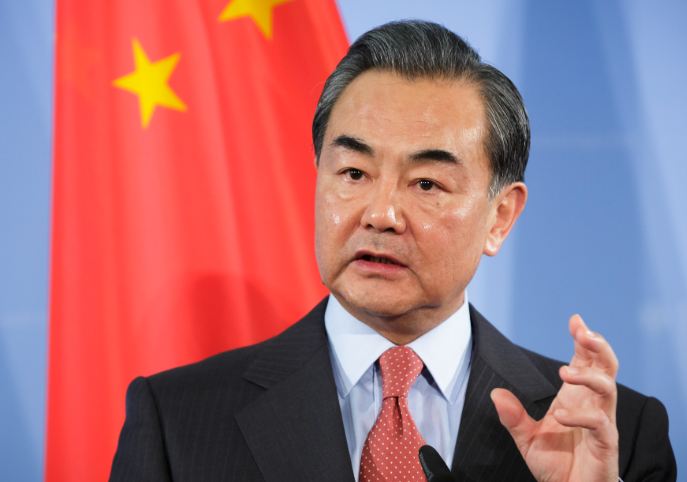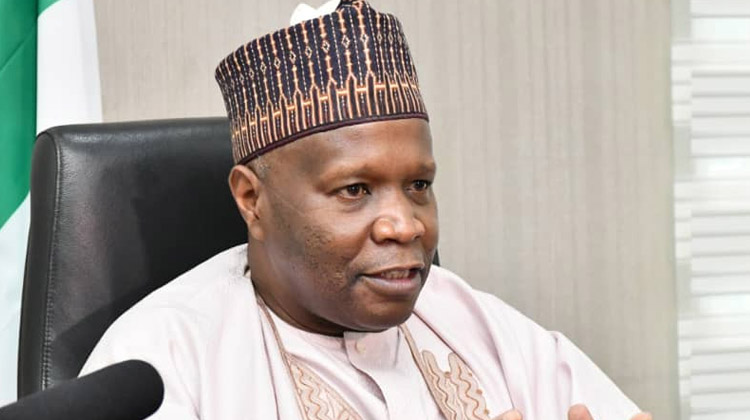By Michael Onjewu, Abuja
Wang Yi, China’s Foreign Minister and member of the Political Bureau of the Communist Party of China (CPC) Central Committee, is set to visit Nigeria and three other African countries from January 5 to 11, 2025.
This visit marks the 35th consecutive year that a Chinese foreign minister has chosen Africa for their first overseas trip of the year. In 2024, Wang visited Tunisia, Togo, and Ivory Coast.
In a statement, Mao Ning, a spokesperson for the Chinese foreign ministry, said the tradition of visiting Africa first at the beginning of every year highlights China’s commitment to its African relations.
According to the spokesperson, the purpose of Wang Yi’s upcoming visit is to implement the outcomes of the Forum on China-Africa Cooperation (FOCAC) Beijing Summit and to deepen practical cooperation across various sectors, aiming for sustained and substantive growth in China-Africa relations.
Implications of the Visit for China-Nigeria Relations
Wang Yi’s visit to Nigeria holds significant implications for the bilateral relationship between both nations.
-Trade and Economic Relations
The trade volume between Nigeria and China has experienced remarkable growth. In 2000, bilateral trade was approximately $2 billion, but by 2023, it surged to over $22.6 billion, making Nigeria China’s second-largest trading partner in Africa, following South Africa.
In 2023, Nigeria’s total exports to China reached $1.61 billion, reflecting a 50% increase from the previous year. Meanwhile, imports from China totalled $11.95 billion, accounting for 18.3% of Nigeria’s total imports. This growth highlights China’s increasing investment in Africa and Nigeria’s strategic importance in the region.
According to the China General Chamber of Commerce in Nigeria, there are over 500 registered Chinese enterprises operating in various sectors, including engineering, construction, mining, power, agriculture, automobiles, building materials, oil and gas, and ICT. These companies have invested over $41 billion in the Nigerian economy, according to 2021 figures from the China Global Investment Tracker.
Key projects undertaken by Chinese companies in Nigeria include:
– Construction of the Abuja-Kaduna Railway
– Abuja Rail Mass Transit
– Lagos-Ibadan Railway
– Lagos Blue and Red Rail
– New terminal buildings at Abuja, Lagos, Port Harcourt, Kano, and Enugu airports
– Construction of the Lagos-Badagry Highway
– Lekki Deep Sea Port
– Abuja-Keffi-Akwanga-Lafia-Makurdi road project
– Zungeru Hydroelectric Power Station in Niger State
– Omotosho Power Plant
These projects have significantly contributed to revenue generation, the provision of social services, improved business conditions, and infrastructural development in Nigeria.
In terms of human capital development, these companies have trained thousands of Nigerians in relevant skills across various fields, including engineering, construction, mining, rail, solar energy, and telecommunications, providing both direct and indirect employment opportunities.
Wang Yi’s visit is expected to further strengthen trade and economic relations, positioning Nigeria as China’s largest trading partner on the continent.
-Diplomatic Relations
The relationship between China and Nigeria has evolved significantly since the establishment of diplomatic ties in 1971. Initially characterized by limited interaction, the partnership has transformed into a multifaceted strategic alliance, driven by mutual interests in economic development, trade, and investment.
As one of Africa’s largest economies and a key player in the continent’s political landscape, Nigeria has become increasingly important to China’s broader ambitions, particularly within the Belt and Road Initiative (BRI).
Over the decades, China and Nigeria have engaged in various cooperative ventures, from infrastructure development to cultural exchange. This relationship is fueled by China’s desire to secure resources and markets for its expanding economy, while Nigeria seeks to leverage Chinese investment to address its infrastructural deficits and stimulate economic growth.
The influx of Chinese capital, technology, and expertise has been instrumental in developing critical sectors in Nigeria, including transportation, energy, and telecommunications.
The Belt and Road Initiative, launched in 2013, has further solidified this partnership, positioning Nigeria as a pivotal partner in China’s efforts to enhance connectivity and trade across Asia, Europe, and Africa. Various projects, such as railways, highways, and power plants, aim to foster economic integration and contribute to Nigeria’s national development goals.
Thus, Wang Yi’s visit is anticipated to bolster diplomatic ties and reinforce win-win cooperation between both nations.
-Implementation of FOCAC Agreements
In September 2023, Nigeria and China elevated their bilateral relationship to a comprehensive strategic partnership, marking a significant milestone in their diplomatic ties.
This partnership, established during the FOCAC summit, reflects a mutual commitment to deepen cooperation across various sectors, as evidenced by the signing of several Memoranda of Understanding (MoUs). Key agreements include:
– Cooperation on jointly promoting the Belt and Road Initiative (BRI)
– Peaceful application of nuclear energy
– Strengthening cooperation on human resource development under the Global Development Initiative
– Media exchange and cooperation between China Media Group and the Nigerian Television Authority (NTA)
In addition to government-level agreements, various Nigerian sub-national governments have signed MoUs with Chinese enterprises, reflecting a decentralized approach to bilateral cooperation. These agreements, which include projects like electric tricycle assembly plants, Hebei Industrial Park, the Smart City Project, and the Methanol Complex Project, are instrumental in driving local economic development and addressing specific regional needs.
During his visit to Nigeria, Minister Wang Yi is expected to discuss the implementation of these agreements with the Nigerian government for the mutual benefit of both countries.
Conclusion
Wang Yi’s upcoming visit to Nigeria represents a pivotal moment in the evolving Sino-Nigeria relationship, underscoring the deepening ties between the two nations. As China continues to prioritize its engagement with Africa, this visit not only reaffirms its commitment to fostering sustainable development and economic cooperation but also highlights Nigeria’s strategic role within this framework. The anticipated discussions surrounding the implementation of various agreements, particularly those stemming from the Forum on China-Africa Cooperation, will likely pave the way for enhanced collaboration across multiple sectors.
The significant growth in trade and investment, coupled with the ongoing infrastructure projects, demonstrates the mutual benefits derived from this partnership. As both countries work towards achieving their respective development goals, the comprehensive strategic partnership established in September 2023 serves as a foundation for future engagements. Ultimately, the outcomes of Wang Yi’s visit could further solidify Nigeria’s position as a key player in China’s broader ambitions in Africa, fostering a relationship built on shared interests and collective growth.
-Michael Onjewu is a Journalist and a researcher on Sino-Nigeria relations.





